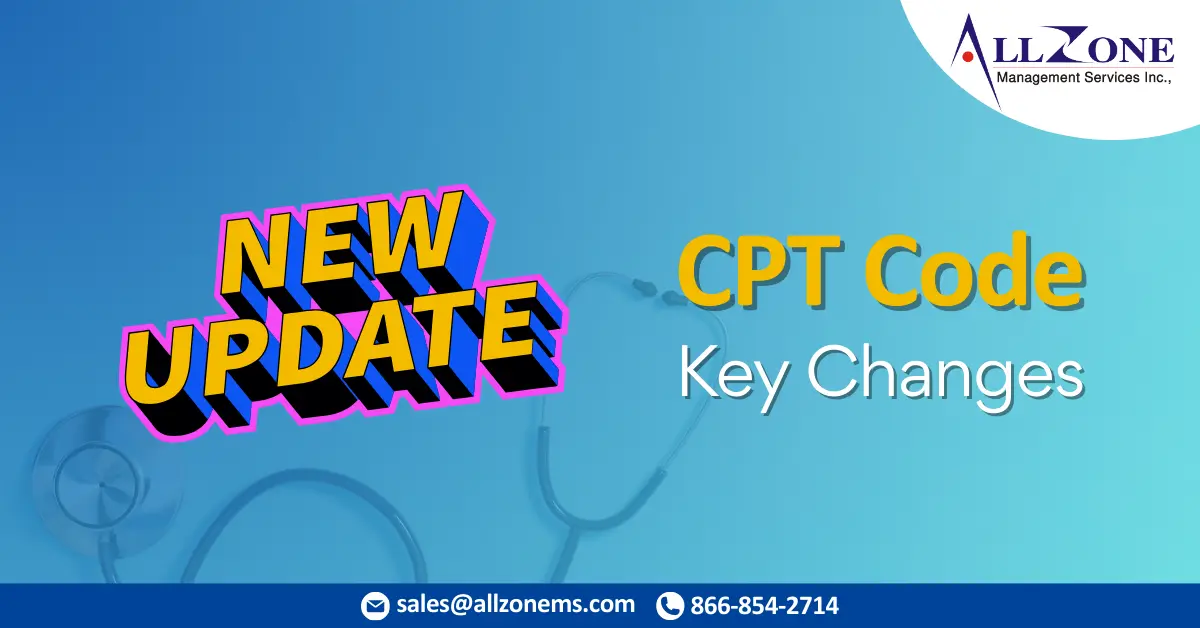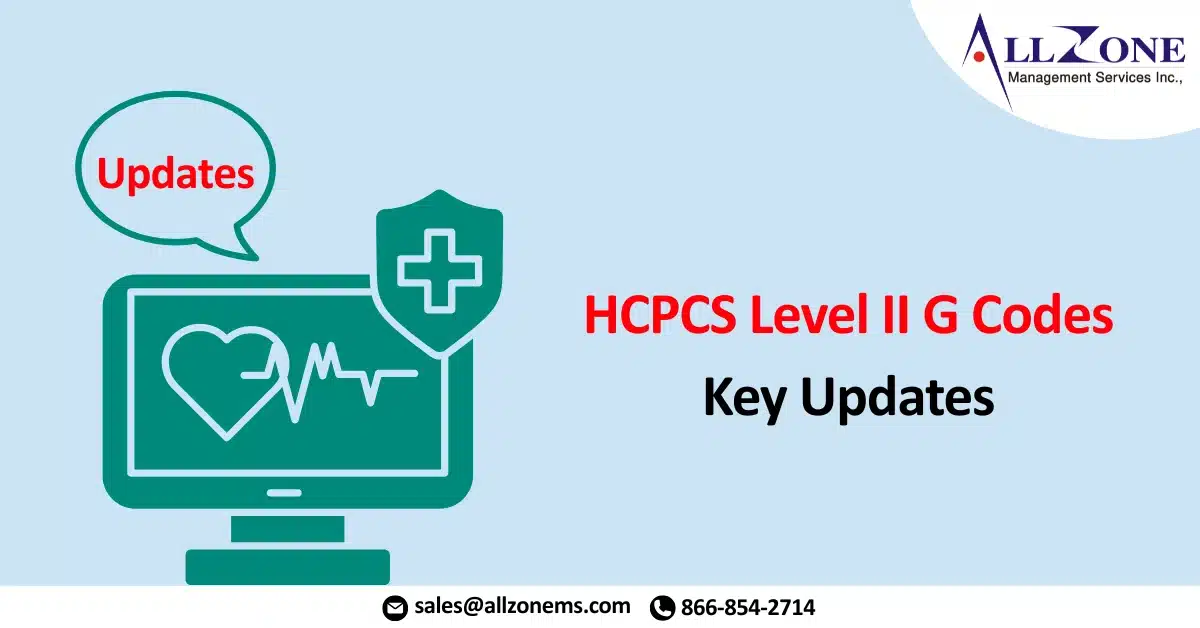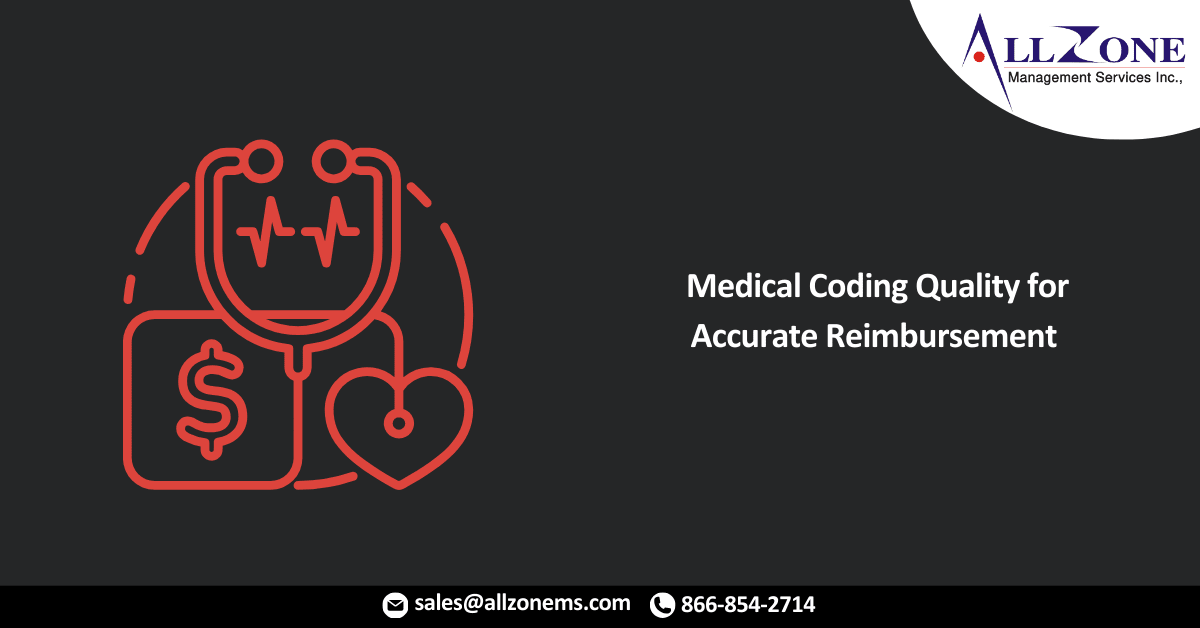Navigating the complexities of denials management can feel overwhelming for revenue cycle leaders seeking effective solutions. Instead of chasing quick fixes, a structured, methodical approach is essential for building a sustainable and impactful denials management strategy. Implementing a Robust Denials Management Solution is key to achieving this, as it provides the necessary framework for a […]
As the healthcare industry continues to evolve, staying informed about 2025 CPT Code Updates is essential for providers, billing professionals, payers, and healthcare administrators. Each year, the American Medical Association (AMA) releases an updated CPT code set to reflect advances in medical knowledge, technology, and clinical practice. The 2025 CPT Code Updates are crucial to […]
Staying abreast of HCPCS Level II code updates is crucial for healthcare providers seeking accurate reimbursement. These codes, particularly HCPCS Level II G codes for Procedures & Professional Services, play a pivotal role in billing for services not covered by CPT® codes. Let’s delve into some key G codes and their implications for your practice. […]
In the complex world of healthcare, accurate medical coding is the linchpin of a healthy revenue cycle. For US-based medical practices, hospitals, and billing companies, efforts to Improve Medical Coding Quality directly translate to timely and accurate reimbursements. Errors in coding can lead to denied claims, compliance issues, and significant financial losses. This blog post […]
The landscape of healthcare policy in the United States has recently been shaken by an executive order issued by the U.S. President, introducing significant potential shifts, particularly concerning Gender-Affirming Care Coding. This has ignited widespread concerns about insurance coverage, general medical coding practices, and compliance obligations for hospitals and healthcare facilities nationwide. On January 28th, […]
Discussions about artificial intelligence (AI) and machine learning (ML) in healthcare often focus on clinical applications—assisting doctors with diagnoses or personalizing cancer treatments. However, healthcare is a vast industry with equally complex financial and administrative components. AI and ML are revolutionizing these behind-the-scenes processes, improving provider efficiency, reducing costs, and enhancing the patient experience. Enhancing […]
AI in Revenue Cycle Management stands as one of the strongest use cases for artificial intelligence (AI) in healthcare. AI-driven solutions have significantly reduced claim denials and improved overall efficiency by automating complex administrative tasks. These technologies enhance data collection, streamline prior authorizations, and optimize medical coding, leading to faster reimbursement cycles. Healthcare providers are […]
As the healthcare landscape continues to evolve, keeping up with Current Procedural Terminology (CPT) code changes, including essential CPT code revisions, is essential for providers, coders, and revenue cycle management (RCM) professionals. Each year, the American Medical Association (AMA) updates the CPT code set to reflect medical advancements, regulatory requirements, and industry best practices. These […]
Medical coding and billing are critical components of the healthcare revenue cycle. They ensure that healthcare providers receive proper reimbursement for the services rendered. However, the ever-evolving regulatory landscape, shifting payer policies, and technological advancements present numerous Medical Coding & Billing Challenges. These challenges significantly impact the efficiency and accuracy of the revenue cycle. As […]
Accounts Receivable (AR) days directly impact cash flow and overall financial health. The longer a claim sits in AR, the more challenging it becomes to collect revenue, leading to cash flow disruptions, operational inefficiencies, and reduced profitability. Therefore, it’s crucial for businesses to actively work to reduce AR days and improve their financial performance. With […]










